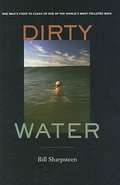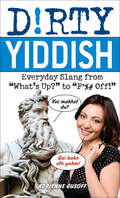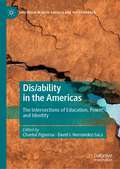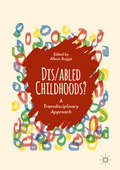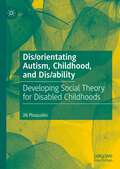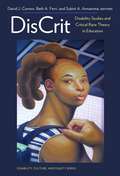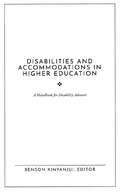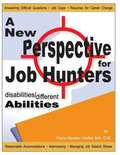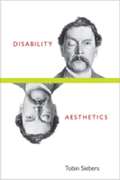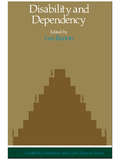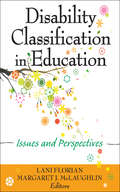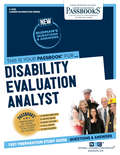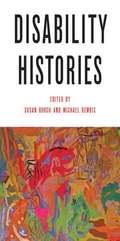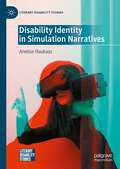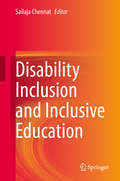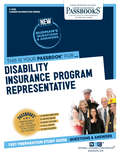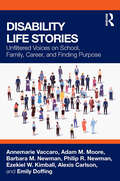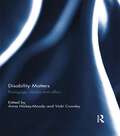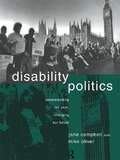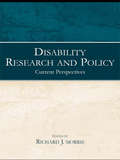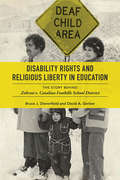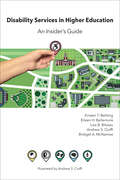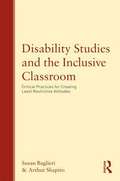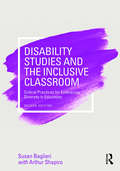- Table View
- List View
Dirty Water: One Man’s Fight to Clean Up One of the World’s Most Polluted Bays
by Bill SharpsteenDirty Water is the riveting story of how Howard Bennett, a Los Angeles schoolteacher with a gift for outrageous rhetoric, fought pollution in Santa Monica Bay--and won.
Dirty Yiddish: Everyday Slang from "What's Up?" to "F*%# Off!" (Dirty Everyday Slang)
by Adrienne GusoffNext time you’re chattin’ with your khaverim (friends) and mishpukheh (family), bust out some Yiddish expressions that’ll liven up the conversation.Nothing is censored in Dirty Yiddish. It includes phrases for any situation, so readers have enough chutzpah (balls) to tell the local deli that they’ve waited long enough for their knish, and explicit swear words crude enough to shock Bubby and everyone else at the Passover seder. There’s even vulgar sex terminology so graphic it puts the outspoken Lower East Side princesses to shame. Bust out with expressions they never teach you in school, including cool slang, funny insults, explicit sex terms, and raw swear words. Dirty Yiddish teaches the casual expressions heard every day on the streets of New York . . . What’s up? Vos makhst du?Crazy bastard! Meshuggeneh momzer!I’m hammered. Ikh bin fershikkert.Don’t fuck with me! Bareh mikh nit!I have the shits. Ikh hob a shittern mogn.Lick my pussy. Lekh meyn lokh.Was it good for you? Tsufreedn?
Dis/ability in the Americas: The Intersections of Education, Power, and Identity (Education in Latin America and the Caribbean)
by Chantal Figueroa David I. Hernández-SacaThis edited volume highlights the rich and complex educational debates around Critical Disability Studies in Education (DSE), critical mental health, and crip theories. Chapter authors use the term Dis/ability to criticize aspects of education research and international development that do not center the experiences of dis/abled students and people with dis/abilities. Through case studies from around the Americas, chapters highlight how top-down approaches to disabilities further oppress rather than emancipate. The volume prioritizes the spaces of resistance where local initiatives speak back to the demands imposed by an ever-globalizing world shaped by colonialism and imperialism, undergird by intersectional ableism. Voices of disabled students and people with dis/abilities counter-narrate the personal, interpersonal, structural, and political ways in which biomedical and psychological models of disability have impacted their well-being throughout education and society in the Americas. Through a critical sentipensante approach that centers the “epistemologies of the south,” this volume challenges global mental health and dis/ability hegemony in the Americas.
Dis/abled Childhoods?
by Allison BoggisThis edited collection explores the intersectionality of childhood and disability. Whereas available scholarship tends to concentrate on care-giving, parenting, or supporting and teaching children and young people with special educational needs and disabilities, the contributors to this collection offer an engaging and accessible insight into childhoods that are impacted by disability and impairment. The discussions cut across traditional disciplinary divides and offer critical insights into the key issues that relate to disabled children and young people's lives, encouraging the exploration of both disability and childhoods in their broadest terms. Dis/abled Childhoods? will be of interest to students and scholars across a range of disciplines including Special Educational Needs; Childhood Studies; Disability Studies; Youth Studies; and Health and Social Care.
Dis/orientating Autism, Childhood, and Dis/ability: Developing Social Theory for Disabled Childhoods
by Jill PluquailecThis book considers the many ways autistic lives have been dominantly storied historically, politically, socially, and culturally. Using a range of transdisciplinary theory, the author develops a theoretically rich approach termed ‘dis/orientation’, which breaks new ground for autism research’s understanding of everyday life, and everyday childhoods. The book uses stories of everyday life to provoke new analyses of what it means to talk about, live with, and become, an autistic child: these stories of schooling and education highlight what is done to autistic bodies, what is done by these bodies, and what becomes between them. This offers a way in to the theoretical work of dis/orientation; a practice and an ethic, that means remaining ever watchful for single orientations towards (and away from) autism and childhood, and the children living those childhoods. This leads to new disciplinary grounds, a reconceptualisation of the terrains of research and practice, not of the disordered and disembodied autistic mind, but of the embodied, lived, and everyday.
DisCrit: Disability Studies and Critical Race Theory in Education
by David J. Connor Beth A. Ferri Subini A. AnnammaIn this groundbreaking volume, scholars examine the achievement/opportunity gaps from both historical and contemporary perspectives, as well as the overrepresentation of minority students in special education and the school-to-prison pipeline. Chapters also address school reform and the impact on students based on race, class, and dis/ability and the capacity of law and policy to include (and exclude).
Disabilities and Accommodations in Higher Education: A Handbook For Disability Advisors
by Benson KinyanjuiDISABILITIES AND ACCOMMODATIONS IN HIGHER EDUCATION: A HANDBOOK FOR DISABILITY ADVISORS
Disabilities/Different Abilities
by Paula Reuben VieilletThis is a hands-on workbook which will help the job hunter who has a disability secure employment. Step by step, this manual guides the job hunter through the vocational process in an honest and positive manner so as to get results. It is designed for individual usage, or in conjunction with a trained professional. The first section, Getting to Know You, addresses self-esteem, personal values and job goal definition and includes motivational strategy. The second section, Facing Workplace Discrimination, reviews application and interviewing functions with a focus on eliminating discrimination in the hiring process. Typical concerns of job hunters are answered in a straightforward and informative manner. The third section, Ready, Set, Go, deals with feelings and concerns regarding returning to work and includes a handy reference guide of available resources for job hunters with disabilities.
Disability Aesthetics
by Tobin SiebersDisability Aesthetics ambitiously redefines both 'disability' and 'aesthetics,' showing us that disability is central not only to modern art but also to the way we apprehend (and interact with) bodies and buildings. Along the way, Tobin Siebers revisits the beautiful and the sublime, 'degenerate' art and 'disqualified' bodies, culture wars and condemned neighborhoods, the art of Marc Quinn and the fiction of Junot Díaz---and much, much more. Disability Aesthetics is a stunning achievement, a must-read for anyone interested in how to understand the world we half create and half perceive." ---Michael Bérubé, Paterno Family Professor in Literature, Pennsylvania State University. "Rich with examples of the disabled body in both historical and modern art, Tobin Siebers's new book explores how disability problematizes commonly accepted ideas about aesthetics and beauty. For Siebers, disability is not a pejorative condition as much as it is a form of embodied difference. He is as comfortable discussing the Venus de Milo as he is discussing Andy Warhol. Disability Aesthetics is a prescient and much-needed contribution to visual & critical studies." ---Joseph Grigely, Professor of Visual and Critical Studies, The School of the Art Institute of Chicago. Disability Aesthetics is the first attempt to theorize the representation of disability in modern art and visual culture. It claims that the modern in art is perceived as disability, and that disability is evolving into an aesthetic value in itself. It argues that the essential arguments at the heart of the American culture wars in the late twentieth century involved the rejection of disability both by targeting certain artworks as "sick" and by characterizing these artworks as representative of a sick culture. The book also tracks the seminal role of National Socialism in perceiving the powerful connection between modern art and disability. It probes a variety of central aesthetic questions, producing a new understanding of art vandalism, an argument about the centrality of wounded bodies to global communication, and a systematic reading of the use put to aesthetics to justify the oppression of disabled people. In this richly illustrated and accessibly written book, Tobin Siebers masterfully demonstrates the crucial roles that the disabled mind and disabled body have played in the evolution of modern aesthetics, unveiling disability as a unique resource discovered by modern art and then embraced by it as a defining concept. Tobin Siebers is V. L. Parrington Collegiate Professor of English Language and Literature and Art and Design at the University of Michigan. His many books include Disability Theory and The Subject and Other Subjects: On Ethical, Aesthetic, and Political Identity. A volume in the series Corporealities: Discourses of Disability.
Disability And Dependency (Disability, Handicap And Life Chances Ser. #Vol. 5)
by Len BartonFirst published in 1989. Routledge is an imprint of Taylor & Francis, an informa company.
Disability Classification in Education: Issues and Perspectives
by Lani Florian Margaret J. McLaughlinThis edited volume examines current disability classification systems, the dilemmas educators face in categorizing students with special needs, and alternative options based on recent challenges and trends.
Disability Evaluation Analyst: Passbooks Study Guide (Career Examination Series)
by National Learning CorporationThe Disability Evaluation Analyst Passbook® prepares you for your test by allowing you to take practice exams in the subjects you need to study. It provides hundreds of questions and answers in the areas that will likely be covered on your upcoming exam, including but not limited to: interpret and accurately apply written laws, rules, regulations, policies and procedures; gather and analyze data; report writing; understanding and interpreting written material; evaluating conclusions in light of known facts; interviewing; and other related areas.
Disability Histories
by Susan Burch Michael RembisThe field of disability history continues to evolve rapidly. In this collection, Susan Burch and Michael Rembis present nineteen essays that integrate critical analysis of gender, race, historical context, and other factors to enrich and challenge the traditional modes of interpretation still dominating the field. As the first collection of its kind in over a decade, Disability Histories not only brings readers up to date on scholarship within the field but fosters the process of moving it beyond the U.S. and Western Europe by offering work on Africa, South America, and Asia. The result is a broad range of readings that open new vistas for investigation and study while encouraging scholars at all levels to redraw the boundaries that delineate who and what is considered of historical value. Informed and accessible, Disability Histories is essential for classrooms engaged in all facets of disability studies within and across disciplines. Contributors are Frances Bernstein, Daniel Blackie, Pamela Block, Elsbeth Bösl, Dea Boster, Susan K. Cahn, Alison Carey, Fatima Cavalcante, Jagdish Chander, Audra Jennings, John Kinder, Catherine Kudlick, Paul R. D. Lawrie, Herbert Muyinda, Kim E. Nielsen, Katherine Ott, Stephen Pemberton, Anne Quartararo, Amy Renton, and Penny Richards.
Disability Identity in Simulation Narratives (Literary Disability Studies)
by Anelise HaukaasDisability Identity in Simulation Narratives considers the relationship between disability identity and simulation activities (ranging from traditional gameplay to more revolutionary technology) in contemporary science fiction. Anelise Haukaas applies posthumanist theory to an examination of disability identity in a variety of science fiction texts: adult novels, young adult literature and comics, as well as ethnographic research with gamers. Haukaas argues that instead of being a means of escapism, simulated experiences are a valuable tool for cultivating self-acceptance and promoting empathy. Through increasingly accessible technology and innovative gameplay, traditional hierarchies are dismantled, and different ways of being are both explored and validated. Ultimately, the book aims to expand our understandings of disability, performance, and self-creation in significant ways by exploring the boundless selves that the simulated environments in these texts allow.
Disability Inclusion and Inclusive Education
by Sailaja ChennatThe book approaches the topic of disability, inclusion and inclusive education in a holistic way including both academic and psycho-social perspectives. It also focuses on the contemporary status of disability studies with a multidisciplinary dimension. The experiences and challenges of children with disabilities and the different dimensions of inclusive education have been situated appropriately by including at the outset, a chapter on 'Disability Studies: The Context'. Chapter on 'Sociology of Disability' accentuates the tone and perspective of the presentations of the authors and editor. The research findings presented in the book indicate grounded realities and suggestions for transactional strategies which are plausible in the Indian context. It has never been timely to publish a book that helps professionals who work with schools, special education teachers, and counsellors to analyze disabilities from a socio-psychological perspective keeping the protagonist at the centre. Case narrations situated in the Indian context enrich the presentations giving voice to the marginalized children/adults with disabilities. This work serves as a comprehensive reference for the most prevalent disabilities at school education level covering the conceptual understanding about each disability, their psycho-social perspectives, implications for classroom transactions, suggestions of transactional strategies along with a brief explanation of assistive technology that can be used in case of each disability.With Right to Education Act (2009) in place, a diverse range of readers, from special educators and other teachers in schools, prospective teachers pursuing their pre service teacher education programmes, teacher educators and researchers in the field of disabilities and inclusive education will all find this volume useful, as a reference material with long shelf life.
Disability Insurance Program Representative: Passbooks Study Guide (Career Examination Series)
by National Learning CorporationThe Disability Insurance Program Representative Passbook® prepares you for your test by allowing you to take practice exams in the subjects you need to study. It provides hundreds of questions and answers in the areas that will likely be covered on your upcoming exam, including but not limited to: interpret and accurately apply written laws, rules, regulations, policies and procedures; gather and analyze data; report writing; understanding and interpreting written material; knowledge of medical terms; and other related areas.
Disability Life Stories: Unfiltered Voices on School, Family, Career, and Finding Purpose
by Barbara M. Newman Philip R. Newman Annemarie Vaccaro Adam M. Moore Ezekiel W. Kimball Alexis Carlson Emily DoffingBased on a 10-year longitudinal study in the United States, this much-needed text offers insight into the developmental trajectories of people with disabilities from childhood through adulthood using their language and amplifying their voices. Through in-depth interviews with 14 disabled people, the authors learned important lessons about how each individual developed and enacted a sense of life purpose. Their experiences are illustrated through rich and unfiltered narratives about childhood, family interactions, primary and secondary education, college, and work experiences. These life stories also illuminate growth over time, capturing details of educational, identity, relationship, and career trajectories. Featuring discussion questions at the end of each chapter, the book stimulates individual and group reflection and invites readers to engage in action as allies and advocates for equity and inclusion for disabled people. Disability Life Stories is essential reading for everyone—especially educators (in-service and pre-service), disability scholars, families, community organizers, healthcare professionals, and disabled people themselves.
Disability Matters: Pedagogy, media and affect
by Vicki Crowley Anna Hickey-MoodyFrom the critique of ‘the medical model’ of disability undertaken during the early and mid-1990s, a ‘social model’ emerged, particularly in the caring professions and those trying to shape policy and practice for people with disability. In education and schooling, it was a period of cementing inclusive practices and the ‘integration’ and inclusion of disability into ‘mainstream’. What was lacking in the debates around the social model, however, were the challenges to abledness that were being grappled with in the routine and pragmatics of self-care by people with disabilities, their families, carers and caseworkers. Outside the academy, new forms of activity and new questions were circulating. Challenges to abledness flourished in the arts and constituted the lived experience of many disability activists. Disability Matters engages with the cultural politics of the body, exploring this fascinating and dynamic topic through the arts, teaching, research and varied encounters with ‘disability’ ranging from the very personal to the professional. Chapters in this collection are drawn from scholars responding in various registers and contexts to questions of disability, pedagogy, affect, sensation and education. Questions of embodiment, affect and disability are woven throughout these contributions, and the diverse ways in which these concepts appear emphasize both the utility of these ideas and the timeliness of their application. This book was originally published as a special issue of Discourse: Studies in the Cultural Politics of Education.
Disability Politics: Understanding Our Past, Changing Our Future
by Jane Campbell Mike OliverThis powerful book presents a series of perspectives on the process of self-organisation of disabled people which has taken place over the last thirty years. The 1980s saw a transformation in our understanding of the nature of disability, and consequently the kinds of policies and services necessary to ensure the full economic and social integration of disabled people. At the heart of this transformation has been the rise in the number of organisations controlled and run by disabled people themselves. Through a series of interviews with disabled people who have been centrally involved in the rise of the disability movement, the authors present a new collective history which throws light on the politics of the 1980s, and offers insights into future political developments in the 1990s and on into the twenty-first century.
Disability Research and Policy: Current Perspectives
by Richard J. MorrisThis book is based on research and scholarship produced by the Meyerson Disability Research Project (MDRP) at the University of Arizona. Its chapters are divided into two major sections: 1) Disability Research Areas and 2) Disability Policy Areas. The first section addresses some relatively new areas of research and scholarship with adults and children, such as the use of technology (e.g., videoconferencing and computer technology) in service delivery, whereas the second section critically examines various public policy and legal areas that impact the daily lives of many persons having a disability.
Disability Rights and Religious Liberty in Education: The Story behind Zobrest v. Catalina Foothills School District (Disability Histories #12)
by David A. Gerber Bruce J. DierenfieldIn 1988, Sandi and Larry Zobrest sued a suburban Tucson, Arizona, school district that had denied their hearing-impaired son a taxpayer-funded interpreter in his Roman Catholic high school. The Catalina Foothills School District argued that providing a public resource for a private, religious school created an unlawful crossover between church and state. The Zobrests, however, claimed that the district had infringed on both their First Amendment right to freedom of religion and the Individuals with Disabilities Education Act (IDEA). Bruce J. Dierenfield and David A. Gerber use the Zobrests' story to examine the complex history and jurisprudence of disability accommodation and educational mainstreaming. They look at the family's effort to acquire educational resources for their son starting in early childhood and the choices the Zobrests made to prepare him for life in the hearing world rather than the deaf community. Dierenfield and Gerber also analyze the thorny church-state issues and legal controversies that informed the case, its journey to the U.S. Supreme Court, and the impact of the high court's ruling on the course of disability accommodation and religious liberty.
Disability Rights and Religious Liberty in Education: The Story behind Zobrest v. Catalina Foothills School District (Disability Histories)
by David A. Gerber Bruce J. DierenfieldIn 1988, Sandi and Larry Zobrest sued a suburban Tucson, Arizona, school district that had denied their hearing-impaired son a taxpayer-funded interpreter in his Roman Catholic high school. The Catalina Foothills School District argued that providing a public resource for a private, religious school created an unlawful crossover between church and state. The Zobrests, however, claimed that the district had infringed on both their First Amendment right to freedom of religion and the Individuals with Disabilities Education Act (IDEA). Bruce J. Dierenfield and David A. Gerber use the Zobrests' story to examine the complex history and jurisprudence of disability accommodation and educational mainstreaming. They look at the family's effort to acquire educational resources for their son starting in early childhood and the choices the Zobrests made to prepare him for life in the hearing world rather than the deaf community. Dierenfield and Gerber also analyze the thorny church-state issues and legal controversies that informed the case, its journey to the U.S. Supreme Court, and the impact of the high court's ruling on the course of disability accommodation and religious liberty.
Disability Services in Higher Education: An Insider's Guide
by Kirsten T. Behling Eileen H. Bellemore Lisa B. Bibeau Bridget A. McNameeDisability Services in Higher Education is the first comprehensive guide for people working in the field of ADA compliance in higher education. The authors examine how disabilities are supported to ensure students receive appropriate accommodations throughout their collegiate experience as well as provide guidance on overall campus accessibility. This volume provides an overview of the responsibilities of a Disabilities Service professional through an examination of relevant literature, laws and regulatory language, case law, and narrative on established practices. It also offers resources that current professionals can modify for use in their day-to-day practice immediately. The authors explore the complexities of accessibility, paying careful attention to the nuances of disability evaluation, accommodation decisions, management of a disability service office, advocating for resources and collaboration within and outside of higher education institutions. This practitioner-friendly book will help newcomers and seasoned professionals explore and evaluate best practices in the field through questions, examples, and functional job aids available for immediate use.
Disability Studies and the Inclusive Classroom: Critical Practices for Creating Least Restrictive Attitudes
by Susan BaglieriThis book's mission is to integrate knowledge and practice from the fields of disability studies and special education. Parts I & II focus on the broad, foundational topics that comprise disability studies (culture, language, and history) and Parts III & IV move into practical topics (curriculum, co-teaching, collaboration, classroom organization, disability-specific teaching strategies, etc.) associated with inclusive education. This organization conforms to the belief that least restrictive environments (the goal of inclusive education) necessarily emerges from least restrictive attitudes (the goal of disability studies). Discussions throughout the book attempt to illustrate the intersection of theory and practice.
Disability Studies and the Inclusive Classroom: Critical Practices for Embracing Diversity in Education
by Susan BaglieriDisability Studies and the Inclusive Classroom is a core textbook that integrates knowledge and practice from the fields of disability studies and special education. The second edition has been fully revised and updated throughout to include stronger connections between race, class, sexual orientation, gender, and disability to emphasize intersecting identities and experiences; stronger emphasis on curriculum and teaching rather than on attitudes toward disability; and updates to current events, cultural references, resources, research literature, laws, and policies.
